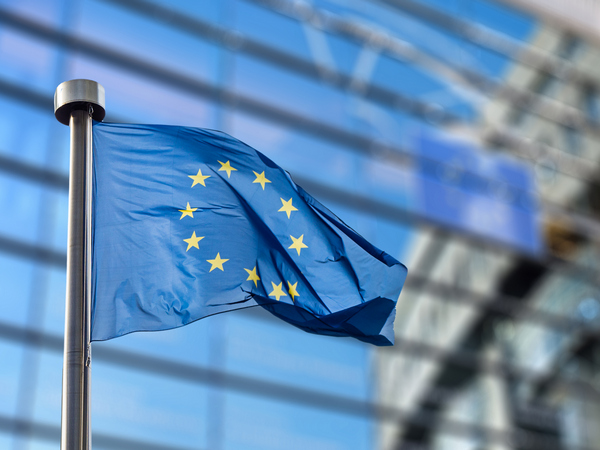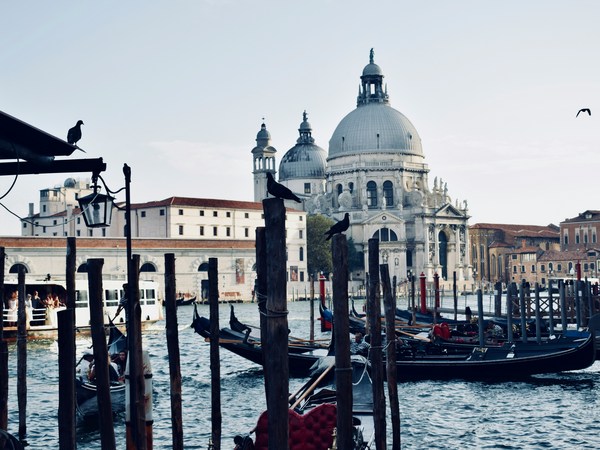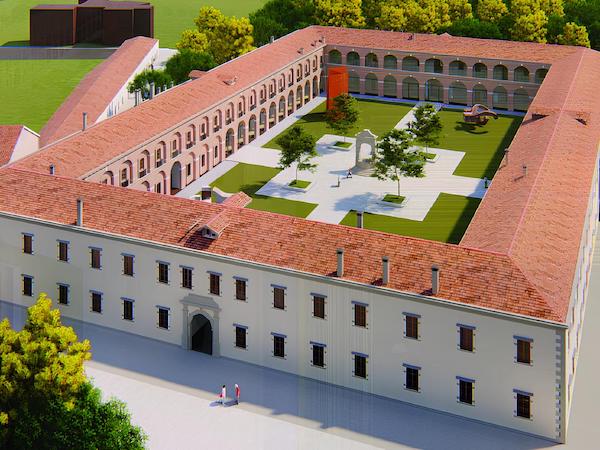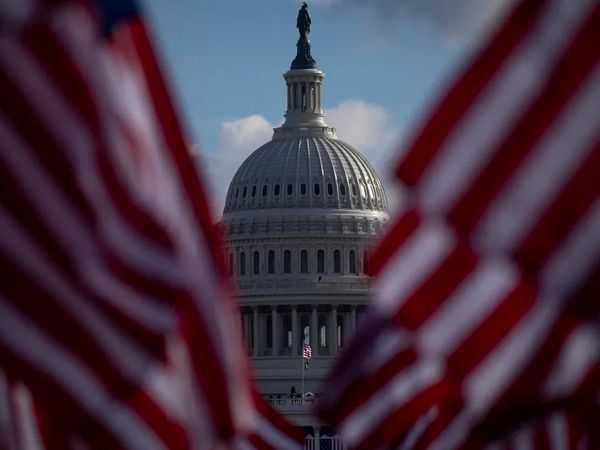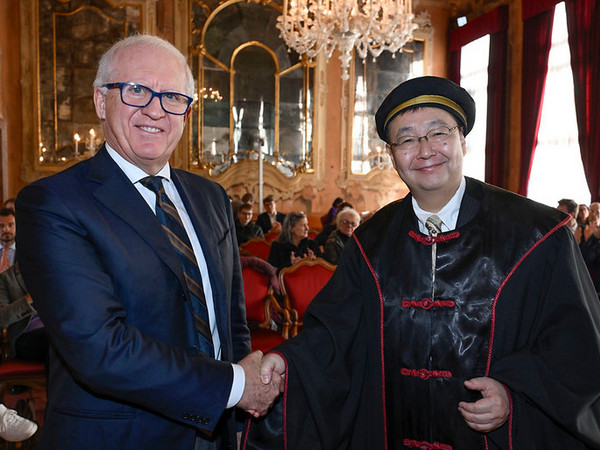At the root of a dramatic war that Russian President Vladimir Putin is unleashing against Ukraine there is a serious breach of international law: Russia’s recognition of the separatist republics in the Donbas region. We have interviewed Professor Fabrizio Marrella, full professor of International Law and European Union Law at the Department of Economics of Ca’ Foscari University of Venice.
Professor, can Russia’s invasion of Ukraine be justified according to international law?
If we distinguish rhetoric from law, we must recognise that we are witnessing an extremely serious breach of international law which goes beyond the pressure strategy that Russia has employed to obtain a negotiation on the neutralisation of Ukraine.
First, we watched President Putin’s televised speech in which he announced the “recognition” — exclusively on the part of the Russian Federation — of the so-called Separatist Republics of Donetsk and Luhansk as independent states in Eastern Ukraine. Then, we heard him state he would sign treaties of friendship and mutual assistance with these supposed “independent states”. This is an extremely serious act against Ukraine and these can in no way be recognised as “states” according to international law. Imagine what would happen if Austria did the same with South Tyrol! The treaties that President Putin signed are patently invalid and have been made with puppet governments.
A further paradox is that, at the time of the writing of a well-known opinion of the International Court of Justice regarding the declaration of independence of Kosovo from Serbia, it was Russia who reaffirmed the fundamental principle of territorial integrity of states. Exceptions can be made only in very specific circumstances. “However, these circumstances should be extremely limited, such as a total armed attack on the part of the state [in this case, Ukraine] that threatens the very existence of the population. In all other cases, every possible effort must be made to defuse the tension between the territorial state and the ethnic community involved in the framework of the existing state” (from the written memory of the Russian Federation, paragraph 88).
Russia’s final act was the aggression of Ukraine, which started with military manoeuvres and resulted in an invasion of Ukraine. Let’s be clear: this type of military action requires preparation for one and a half years, and certainly not just a few weeks of political talk on TV.
At this point, we are witnessing a blatant violation of article 2, paragraph 4 of the Charter of the United Nations, according to which all members, including Russia, “shall refrain in their international relations from the threat or use of force against the territorial integrity or political independence of any state, or in any other manner inconsistent with the Purposes of the United Nations.” As is well known, the exceptions to this rule are based on article 51 of the Charter and involve the right of self-defence, be it individual (of Ukraine) or collective (in this case, if Nato were attacked, but Ukraine is not a member of Nato).This is a war of aggression and it is an international crime.
How is Russia justifying its actions?
In order to understand the main motives cited by President Putin, we must listen to the speech he delivered on 24 February 2022, in which he lamented the serious violations of international law committed by “westerners” following a US tradition during the last 20 years, which included the second war in Iraq (an invasion based on non-existing evidence), the fall of Muammar al-Qaddafi’s regime in Libya, and the disasters of Syria and Afghanistan.
We can say without doubt that recent military intervention on the part of the “West” — which has been criticised in Europe — has involved serious errors in terms of international law and consequent responsibilities (which have, in part, been “hidden” by the United Nations Security Council, in which, however, the Russians did not fully use their right of veto).
However, this does not justify in any way the invasion of Ukraine.
Let’s get this straight: declassified documents from the US, Germany, the UK and France show that Nato promised President Gorbachev and the leaders of the Kremlin that it would never expand towards the East. President Putin has repeated this more than once: Nato has violated that pact — a sort of new Yalta agreement — by engaging many states in Eastern Europe, such as the Baltic states, attempting to involve Georgia, and currently attempting to involve Ukraine as well.
This expansion has certainly been regarded by Moscow as an intolerable provocation, given that Ukraine and Kiev are intimately connected with Russia and Belarus in terms of their history, languages, religion and culture. As far as political evaluation goes, this has been a serious error on the part of Nato countries.
Even though the Kremlin’s rage is at least in part understandable — and it has been exacerbated by the sanctions enforced by many Western countries (which is met by Russian counter-sanctions) — it cannot in any way justify a conventional fratricidal war to achieve neutrality in Ukraine. Ex iniuria ius non oritur [law (or right) does not arise from injustice]
Will the EU remain united in the action it will take against Moscow?
Clearly what has happened cements the cohesion among the members of the European Union and strengthens the cohesion among Nato members — Nato has suddenly found its raison d'être (remember, President Macron recently stated that Nato was becoming brain-dead). Whoever has doubts on the European Union and on the meaning of a “military Europe” cannot hesitate: our collective survival is at stake, as well as the decision-making autonomy of our continent, which can act as a mediator during great international crises (this one involves Russia, in the near future it will probably involve China) only if it is united and involved in Nato.
Moreover, it is clearly pointless to organise bilateral meetings between France and Russia, Germany and Russia, Italy and Russia — Europeans can only make a difference if they remain together. Let us not forget that Russians are European, too, and we need to focus on our common roots if we want to build peace on various fronts.
Which sanctions does the EU intend to enforce against Russia?
During the last few hours there has been a lot of talk about a significant strengthening of economic sanctions against Russia and the European Council has already condemned Russia’s military aggression against Ukraine. Since 2014, when the Crimea was annexed to Russia and Ukraine was destabilised, the EU has imposed various types of restrictive sanctions: diplomatic measures, individual restrictive measures (freezing of assets and travel restrictions for blacklisted people), restrictions on economic relations with the Crimea and Sevastopol (import and export bans), restrictions on economic cooperation.
These sanctions can be raised to a much higher level than the current one. But in order to be effective, they cannot be limited to the EU, the USA, and perhaps Australia. So far, other countries have done little — consider Latin American countries and African and Asian countries. It will be interesting to witness the stance that China will take — as a current Russian ally, China might take advantage of this situation as a precedent for its expansionism towards Taiwan and on the South China Sea.
In this context, despite the admonition of Secretary-General Guterres, the United Nations Security Council is technically paralysed — it is chaired by Russia, and with Russia’s veto, it cannot adopt any resolution on this matter.
Clearly this situation will cause issues to Italian companies that trade with Russia, because the new economic sanctions will hit international contracts and cause numerous controversies. It is time for international law professionals to check contracts.
What is the main risk of this war for the EU and Italy, considering our energy dependence?
For a while now the EU has been discussing Europe’s “energy safety”. Italy produces 60% of its electricity using gas, half of which arrives from Russia. Germany is even more dependent on Russia, having abandoned nuclear energy. This crisis demonstrates that we can no longer accept that European countries move at different speeds, with every member state focusing on itself while the EU attempts to coordinate the energy policies of its members. This may be an opportunity to improve our energy independence from imported fossil fuels. It is a matter of national security and of environmental sustainability. Electricity from gas-powered generators will have to decrease from 60% to 30% by 2030 in order to cut CO2 emissions.





